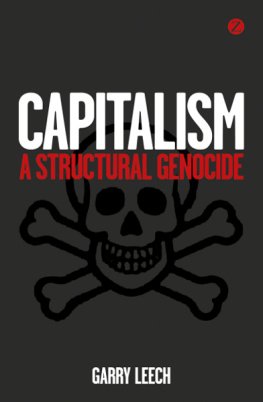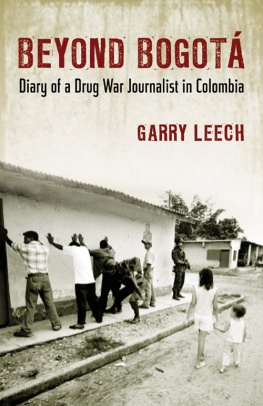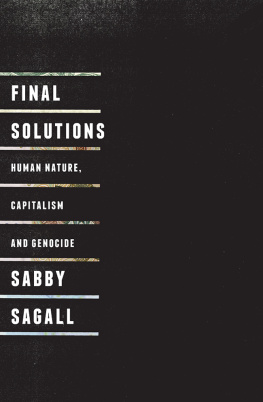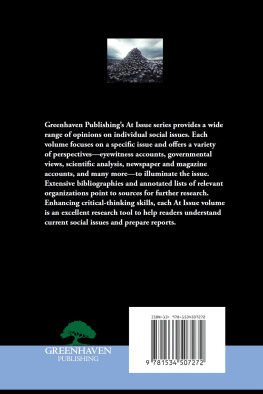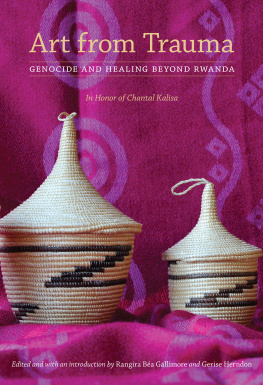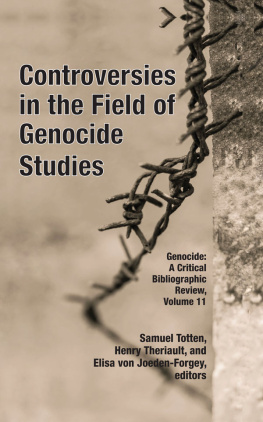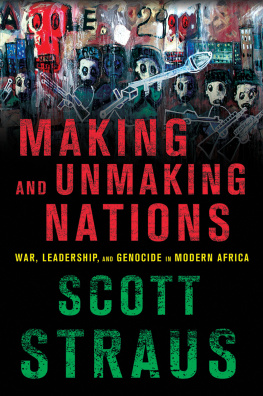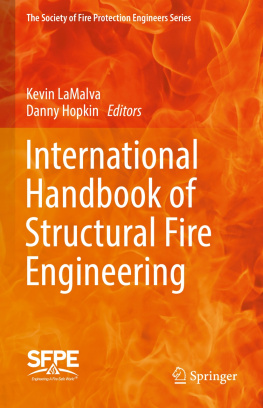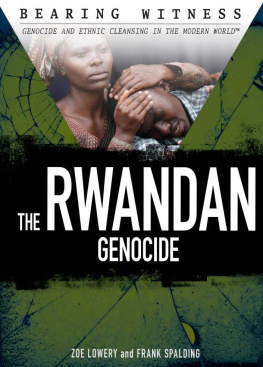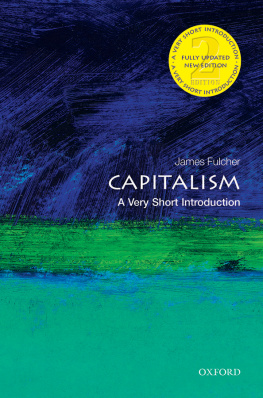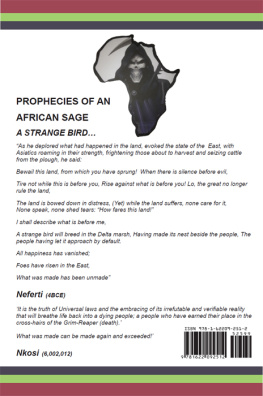
ABOUT THE AUTHOR
G ARRY L EECH is the author of numerous books, including The FARC: The Longest Insurgency (Zed Books, 2011); The Failure of Global Capitalism: From Cape Breton to Colombia and Beyond (CBU Press, 2009); Beyond Bogot: Diary of a Drug War Journalist in Colombia (Beacon Press, 2009); and Crude Interventions: The United States, Oil and the New World (Dis)order (Zed Books, 2006). He is director of the Centre for International Studies and a lecturer in the Department of Political Science at Cape Breton University, Canada.
OTHER BOOKS BY GARRY LEECH AVAILABLE FROM ZED BOOKS
Crude Interventions: The United States, Oil and the New World (Dis)order
The FARC: The Longest Insurgency

para Johan, Miguel y Kathleen, con todo mi amor
Capitalism: A Structural Genocide was first published in 2012 by Zed Books Ltd, 7 Cynthia Street, London N1 9JF, UK and Room 400, 175 Fifth Avenue, New York, NY 10010, USA
www.zedbooks.co.uk
Copyright Garry Leech 2012
The right of Garry Leech to be identified as the author of this work has been asserted by him in accordance with the Copyright, Designs and Patents Act, 1988
Designed and typeset in ITC Bodoni Twelve by illuminati, Grosmont
Index by John Barker
Cover designed by Rogue Four Design
All rights reserved. No part of this publication may be reproduced, stored in a retrieval system or transmitted in any form or by any means, electronic, mechanical, photocopying or otherwise, without the prior permission of Zed Books Ltd.
A catalogue record for this book is available from the British Library
Library of Congress Cataloging in Publication Data available
eISBN 9781780322025
ACKNOWLEDGEMENTS
This book would not have been possible without the valuable intellectual insights provided to me by many people over the years or without the diverse array of exhilarating experiences that have enriched my life. With regard to the more immediate task of actually putting my thoughts down on paper for this book, I owe a huge debt of gratitude to Jim Sacouman and James J. Brittain for their profound insights and inspiration. I would also like to thank Barb Moore, Zelda Abramson, Heather A. Kitchin and Karen J. Turner for the various ways in which they contributed to this project. I am also grateful to Steve Law for his insightful reading of the manuscript and valuable feedback, and to my editors Ken Barlow, Robin Gable and Lucy Morton for their invaluable contribution to this project. I am deeply indebted to my wife Terry for her unwavering support during the writing of this book and of my work in general. Finally, I have written this book in an effort to illustrate that we can indeed create a better world, not just for the sake of my children Johan, Owen and Morgan, and my granddaughter Kathleen, but for the sake of future generations everywhere.
INTRODUCTION
Philosophers have hitherto only interpreted the world in various ways; the point is to change it.
Karl Marx
Over the past thirty years, I have travelled and worked extensively in Latin America. During this time I could not help but notice that significant portions of the population of Latin America endure degrees of poverty inconceivable to most people in North America the United States and Canada. Furthermore, in many places, the degree of poverty has not diminished over these decades, and inequality has actually increased. These observations from my time in Latin America led me to question why such disparities exist between the majority of the population in North America, who are relatively wealthy, and the majority of people in Latin America, who continue to endure such hardship. After all, this disparity exists in a hemisphere indeed, in a world that contains more than a sufficient supply of resources to ensure that everyones basic needs are met.
One of the most profound and depressing experiences I had in Latin America occurred when I was travelling alone in a canoe down the Napo river in the Ecuadorian Amazon in 1989. I spent almost two weeks on the Napo and stayed with several indigenous families. The most prominent indigenous groups in the Napo region are the Huaorani, Cofan, Secoya and Quichua, all of whom had succeeded in remaining isolated from the outside world until the middle of the twentieth century. By the time I visited the region, many of those indigenous families living along the banks of the Napo had become accustomed to outsiders. But other clans still lived relatively isolated deeper in the rainforest. The indigenous people living along the Napo had retained much of their traditional way of life, but one of the families that I stayed with was markedly different than the others. That particular family consisted of a father and his 5-year-old daughter, and they had a melancholy and a defeated air that was truly disturbing.
Most of the wood and thatched houses in the village had been abandoned and only a handful of inhabitants remained. I learned that an oil company had arrived in the village sixteen years earlier. The company promised the indigenous inhabitants jobs and a better life. So they abandoned their traditional lifestyle, which consisted of hunting, fishing and gathering forest crops. They no longer had to engage in these practices because the company provided them with all the food and goods they needed in return for their labour. The indigenous villagers came to believe that life would always be that way. But the oil ran out one year before I arrived in the village and it was difficult for the indigenous to return to their traditional ways of life because the oil had polluted the forest and streams. Also, many of the younger indigenous people had little interest in learning the traditional ways of which they knew very little after experiencing the modern life that the company had provided through the provision of such amenities as alcohol, Coca-Cola, canned food, electricity and many other things. Ultimately, finding it difficult to sustain themselves in the aftermath of the companys departure, many of the people, including the mother of the 5-year-old girl I met, abandoned the village and went in search of jobs in Ecuadors cities in a desperate and often futile attempt to recapture the modern world. The indigenous inhabitants of that remote village, those who remained and those who had left, were stuck between two worlds: the traditional world they could not return to because of the ecological destruction wrought by the oil company and the modern world and its promises of wealth and material riches that were beyond their grasp.
Tragically, I would later learn that the story of this small indigenous village was not unique. US-based multinational oil companies, including Texaco, Occidental, Conoco, Amoco, ARCO, Unocal and Mobil, had been operating throughout the Napo region of the Amazon since the 1960s with devastating consequences for the indigenous population and the rainforest. The operations of oil companies dumped untreated chemicals and industrial solvents into the waters of the rainforest. Texaco alone spilled 16.8 million gallons of oil into the Ecuadorian Amazon more than one-and-a-half times as much as spilled in the Exxon Valdez disaster in Alaska.
And so, almost five hundred years after the arrival of the Spanish conquistadors, the indigenous in the Ecuadorian Amazon had become victims of yet another conquest. This time, instead of Spaniards wielding swords and cannons, the new conquistadors were US corporations that had come armed with oil drilling equipment and promises of a better life. The repercussions of that conquest were what I witnessed in that desolate village. It was difficult to grasp the devastation that had been visited on that small indigenous community and its culture, first by the arrival of the oil company and then by its departure.
Next page
